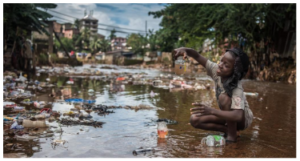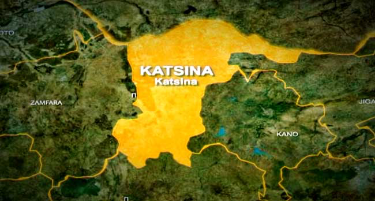At a recent press conference held on Wednesday, Dr. Kabir Suleiman, the Incidence Manager and Director of Epidemiology at the State Primary Healthcare Development Agency, revealed that the state has recorded 118 suspected cases of cholera. Dr. Suleiman emphasized the state’s readiness to prevent the spread of cholera and manage other vaccine-preventable outbreaks.
To address the cholera threat, the state government has activated its Incidence Management System as a proactive measure to ensure effective management of the outbreak. Dr. Suleiman announced that the state government has embarked on the construction of 102 health facilities across various Local Government Areas (LGAs). Additionally, the state is focusing on other crucial interventions such as the improvement of Water, Sanitation, and Hygiene (WASH) facilities, the solarization of water systems, and the rehabilitation of boreholes in many LGAs.
The state government has also designated 34 comprehensive Health Centers with dedicated cholera treatment units and centers for admitting cholera cases. According to the Global Task Force for Cholera Control, Katsina has 10 LGAs categorized as high-risk areas, with Funtua, Jibia, and Batsari LGAs topping the list.
Dr. Suleiman detailed the state’s comprehensive response plan: “We have also commenced the deployment of commodities to the 34 LGAs of the state because Katsina is one of the states termed as high risk for cholera based on the report of the Global Task Force for Cholera Control. We also have Oral Rehydration Points. We maintain a very sensitive surveillance system with regular reporting in those areas to manage the situation.”
 Despite the current situation, Dr. Suleiman noted that there is no full-blown cholera outbreak at present. However, the state remains fully prepared to handle any potential outbreaks effectively. He highlighted the state’s readiness: “For now, we don’t have an outbreak of cholera, but the state is fully prepared. We can coordinate any outbreak that affects the state at any point in time. We have all the necessary gadgets needed from the LGA to the state level to respond to these outbreaks.”
Despite the current situation, Dr. Suleiman noted that there is no full-blown cholera outbreak at present. However, the state remains fully prepared to handle any potential outbreaks effectively. He highlighted the state’s readiness: “For now, we don’t have an outbreak of cholera, but the state is fully prepared. We can coordinate any outbreak that affects the state at any point in time. We have all the necessary gadgets needed from the LGA to the state level to respond to these outbreaks.”
Dr. Suleiman explained the severity of cholera: “Cholera is a very severe illness characterized by acute diarrhea and associated with many complications. It is caused by bacteria and can be life-threatening if not managed properly. Katsina is one of the most populous states in Nigeria, with over nine million people spread across 34 LGAs and 361 wards. Among these, we have 21 LGAs that are security-compromised.”
He highlighted the state’s surveillance efforts: “We have a routine surveillance system that operates 24 hours a day, seven days a week, throughout the year. Through this system, we can detect cases of all priority diseases like cholera. Based on our records, the week we experienced a significant outbreak this year was in March, during week 12, when we had an outbreak of cholera in Kusada LGA. We promptly dispatched our rapid response team to the area, and with support from the government and partners, we managed the outbreak. We recorded about 68 cases there, with one death.”
Dr. Suleiman praised the government’s efforts: “That response was commendable. We must appreciate the efforts of the government in supplying the necessary commodities, as well as the support from the local government chairman and other partners who helped us respond effectively to the outbreak. As of today, we have recorded about 118 suspected cases of cholera, with two confirmed cases from Kusada LGA.”
To ensure ongoing preparedness, the state has maintained its alert system. “We have our rapid response team, including surveillance and notification officers, trained and ready to detect cases wherever they are. In terms of infection prevention and control, we aim to ensure that if an infection occurs, it does not spread, especially within healthcare settings. On risk communications, we have produced jingles that are about to start airing to sensitize the public. Additionally, we have trained over 3,000 Volunteer Community Mobilizers (VCMs) who go house to house to educate women on maintaining personal hygiene, using clean water, and consuming well-cooked food,” Dr. Suleiman explained.
In conclusion, Dr. Suleiman’s comprehensive briefing highlights the proactive measures being taken by the state government to address the cholera threat. The multifaceted approach includes infrastructure development, enhanced surveillance, community education, and strategic partnerships, all aimed at safeguarding public health and preventing the spread of cholera and other communicable diseases.




